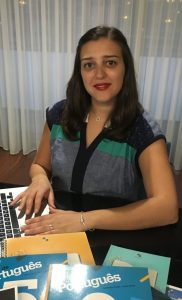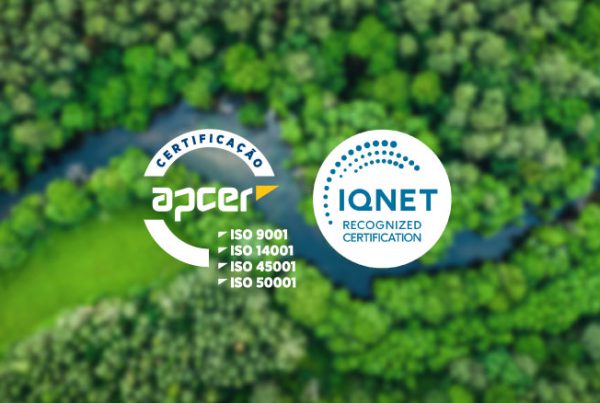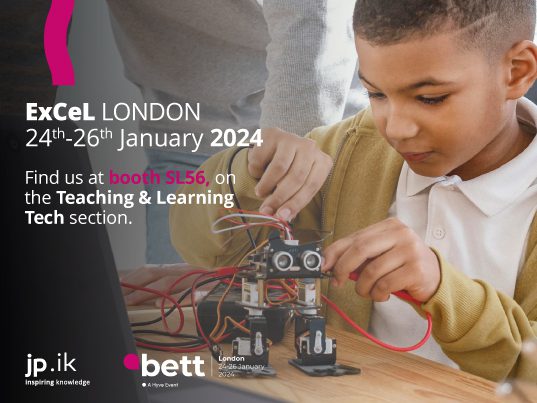“One size does not fit allâ€
Meyer, A., Rose, D. H., & Gordon, D., 2014
Inclusive school presents itself as the most significant achievement of a cultured and democratic society. A society that dreams of education through equity, accepting the difference of all regardless of their individual characteristics. Thus, the “uniformed one-size-fits-all curriculum†(João Formosinho, 1987) should open the way to new perspectives on the design of the curriculum, as well as on the urgent need to change the way we present the contents to our students, a heterogeneous public with distinct interests and ways of acquiring knowledge.
So, should the teacher permanently question his/her activity? Confronting the results achieved with applied pedagogical differentiation? Yes.
The way is questioning, the incessant reflection, the collaboration, the sharing of methodologies, valuing diversity in order to reach every single student. In this context, teachers should invest in their training to update concepts, contents, methodologies and practices. It is important to attend training actions focused on inclusion, cooperative teaching, culture of sharing and cooperation, as well as within the theme of teaching methodologies like Flipped Classroom, since the “solution†to the success and happiness of the students goes through the personalized teaching, aiming to educate them towards an active participation in this global world.
Seymour Papert said that if it were possible to bring a nineteenth-century surgeon into our Operating Blocks, he would certainly not be able to save the patient since he would not be ready to work with the equipment available today.
However, if we were able to bring a nineteenth-century teacher into our classrooms, he would most likely continue to teach, whereas the resources used by most teachers continue to stick to the textbook and photocopies.
Moreover, in Portugal, the teaching community is clearly aging and does not feel motivated to transform their practices, as well as they resist to change content, as this would imply a complete upgrade of the degree they attended more than thirty years ago.
All of this reminds me of Gabriel’s “The Wrong Studyâ€, written in 1995, where it can be read that “(…) the ideal is for the school to prepare me for life by discussing and teaching the current problems and not giving me the same lessons they gave my parents (…)â€.
In this context, it is up to the teacher to meditate on the practices, to observe students and perceive their potentialities, in order to develop educational projects that follow and clearly promote the authentic sense of inclusion. All this, with the purpose of developing a culture of and for autonomy through research approaches that promote the integral evolution of all students, equipping them with a set of skills that will enable them in their own personal and professional life in a safe and quiet way.
Thereby, public and private educational institutions should be open to the expansion of knowledge as a means of communication, with and for all, by teaching that it is possible to believe in a society free of dogmas and conflicts. The expansion of knowledge offers diverse and enriching learning experiences, allowing practicing inclusion, making available the specific pedagogical-didactic resources that will facilitate the teaching-learning process, thus narrowing the paths between two realities (school and life outside school). Despite the difference between them, these two realities complement each other and open doors to make our world a better place.
As a teacher confronted with the needs of my students, as well as with the social, political and pedagogical transformations faster than ever due to the technological evolution, I have plunged into this sea of​​uncertainties for the clear purpose of carrying out a collaborative work. This collaborative work has allowed me to practice inverted classes, leading my students to discover their own talents, working the cerebral plasticity and develop the much-desired pedagogical differentiation.
In this sense, I turn to the Flipped Classroom method that consists of the early recording of videos related to certain contents to be studied by the students in their homes. This method allows me to assist students individually in the classroom context. After viewing the video, they will prepare a worksheet, grammatical or literary QUIZ, as well as a test or task, by using the “Edmodo†application.
This app allows them to verify immediately the knowledge they are yet need to systematize, as it allows me to perceive the subject in which the students reveal greater difficulty. Considering that, and when the task is finished, the teacher receives a graph corresponding to the answers given by the students.
In addition, the parents/ guardians also have access to the tasks and documents available, and can thus monitor the progress of their children. Therefore, from the implementation of these methodologies is expected the progress of the understanding the concepts of inclusion, cooperation, personal development and autonomy, as well as creative learning that stimulates aesthetic and artistic sensibility, scientific, technical and technological knowledge, meeting the “Profile of the Student for the 21st Centuryâ€.
 Contribution by:
Contribution by:
Antonina Cunha holds a degree in Portuguese language, a specialization in pedagogical supervision in language education by the Minho University , a Master degree in Special Education (cognitive and motor domain) by the Upper Institute of Education Sciences (ISCE), and a Specialization in Special Education (sight domain) by the Higher Institute of Information Science and Administration (ISCIA).
At Colégio Novo da Maia, Antonina teaches Portuguese and coordinates of the Library and Study Room, organizing and streamlining the Reading Week.
She created the Championship of Writing at Colégio Novo da Maia that already goes in its 3rd edition, resulting in the publication of the book “Place of the Written Word†(I, II and III), compiling the texts of the participants and translated into English, Spanish, French and German.
The teachers of the five languages ​​supervised the book and illustrated by Matilde Camelo, a student of Colégio Novo da Maia.
Antonina is also the author of the school books of Areal Editores “Get ready for the Portuguese Exam 5â€, “Portuguese Forms 5†and “Portuguese Forms 6â€.
Creator and coordinator of the “Braille Reading and Writing Club†followed by the publication of the books “Feeling the Words†(I and II). Children from all over the world can read the second book, since it is written in ink and Braille in several languages: Portuguese, English, Spanish, French and German.



